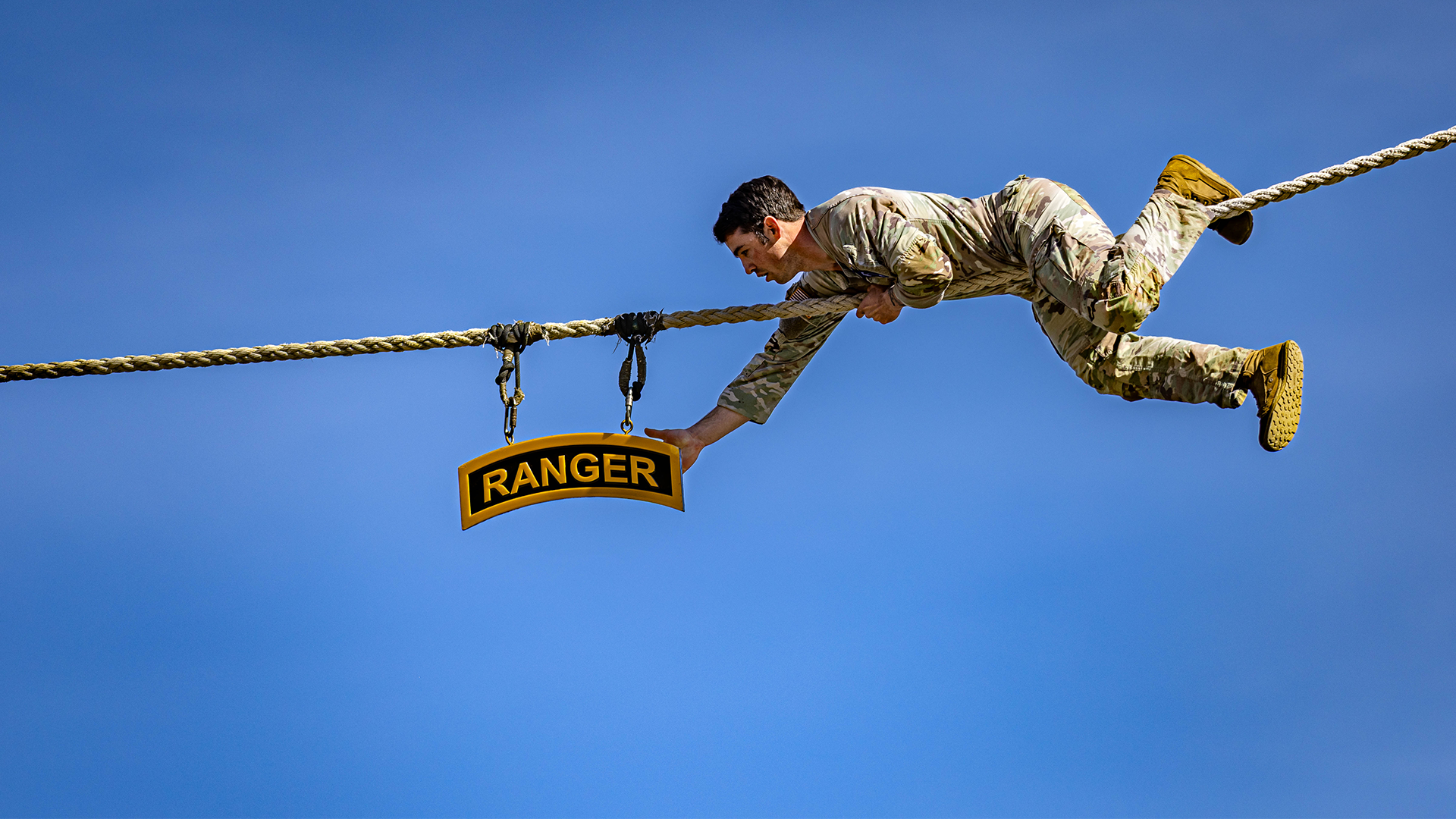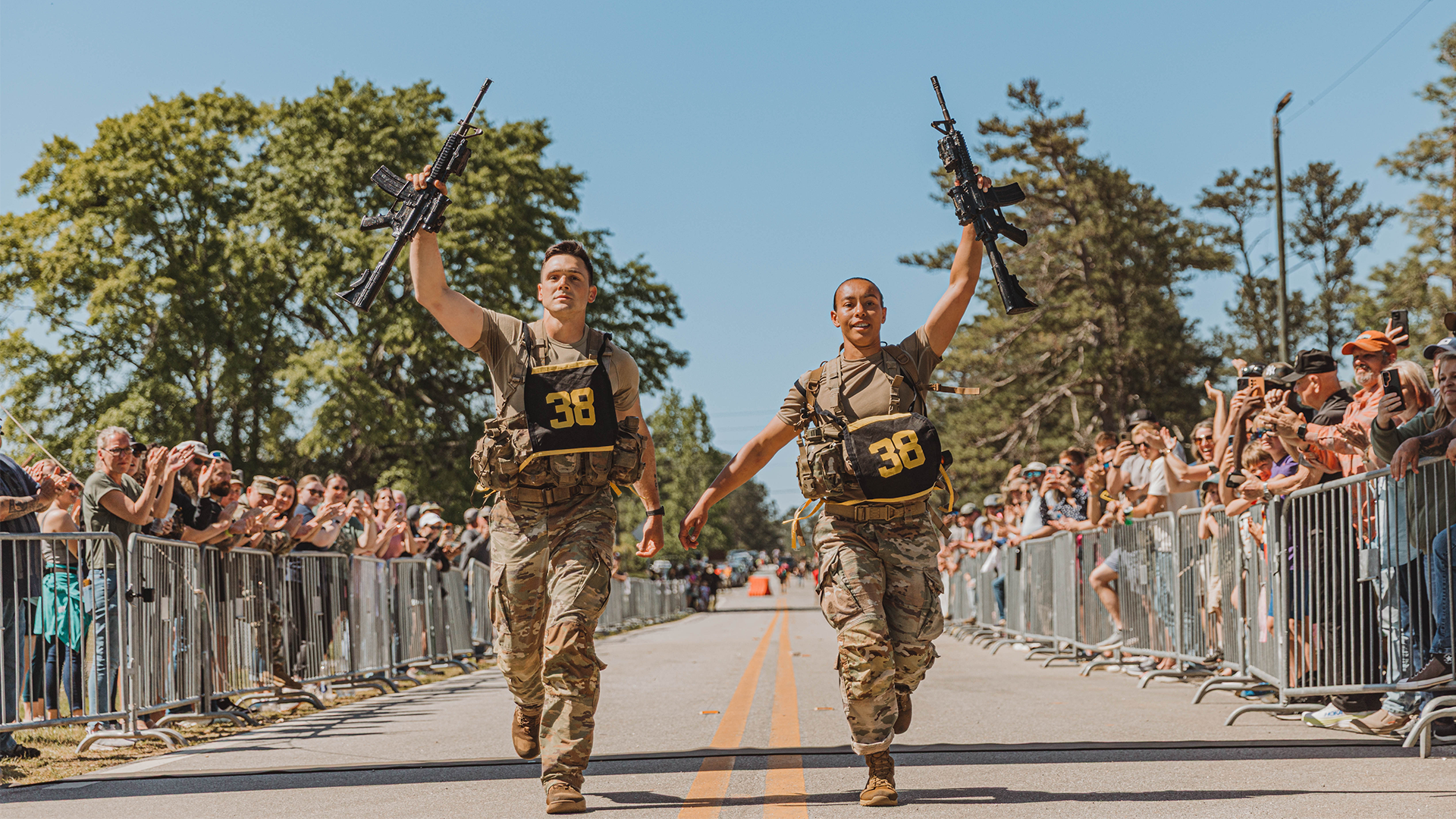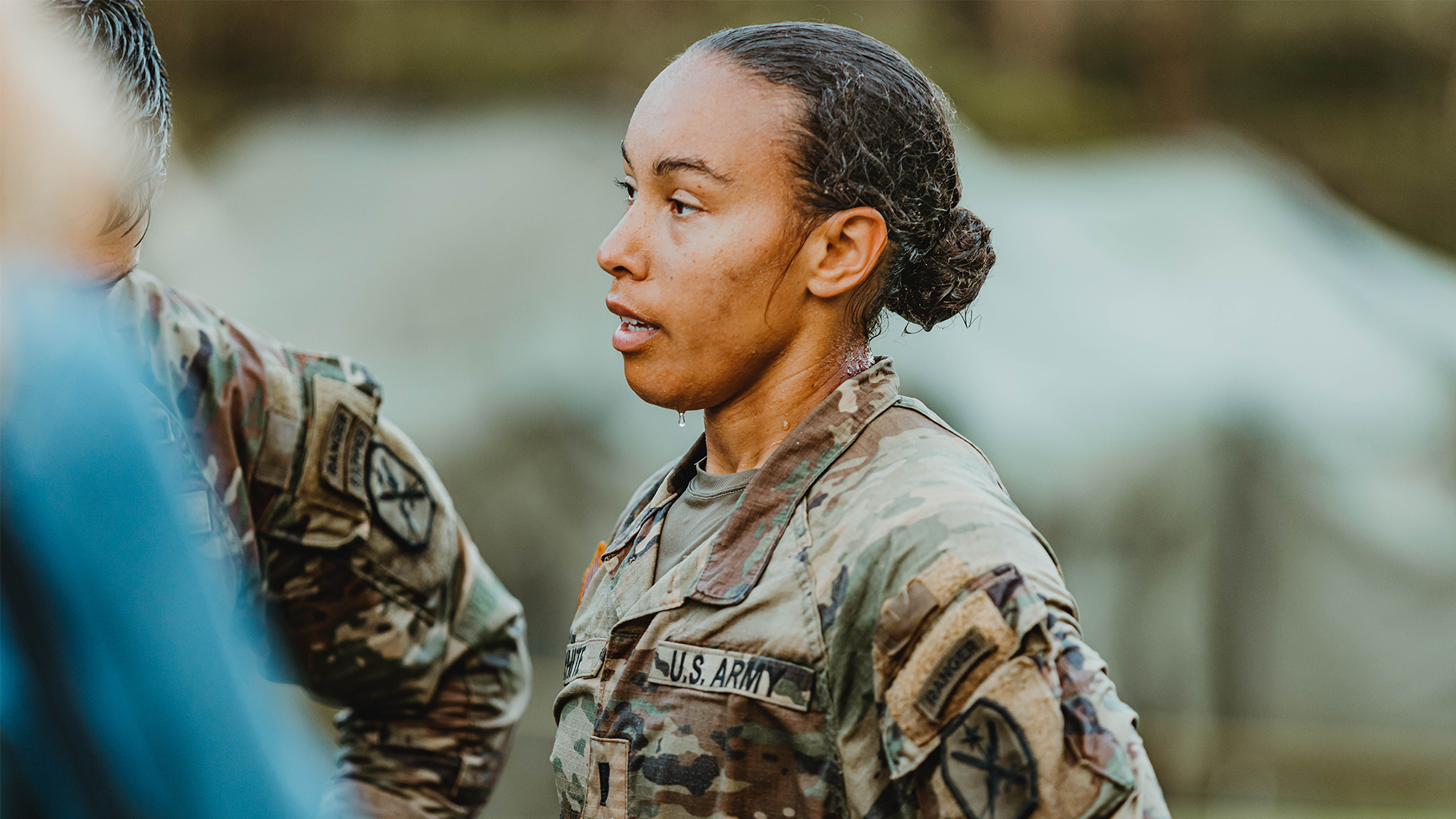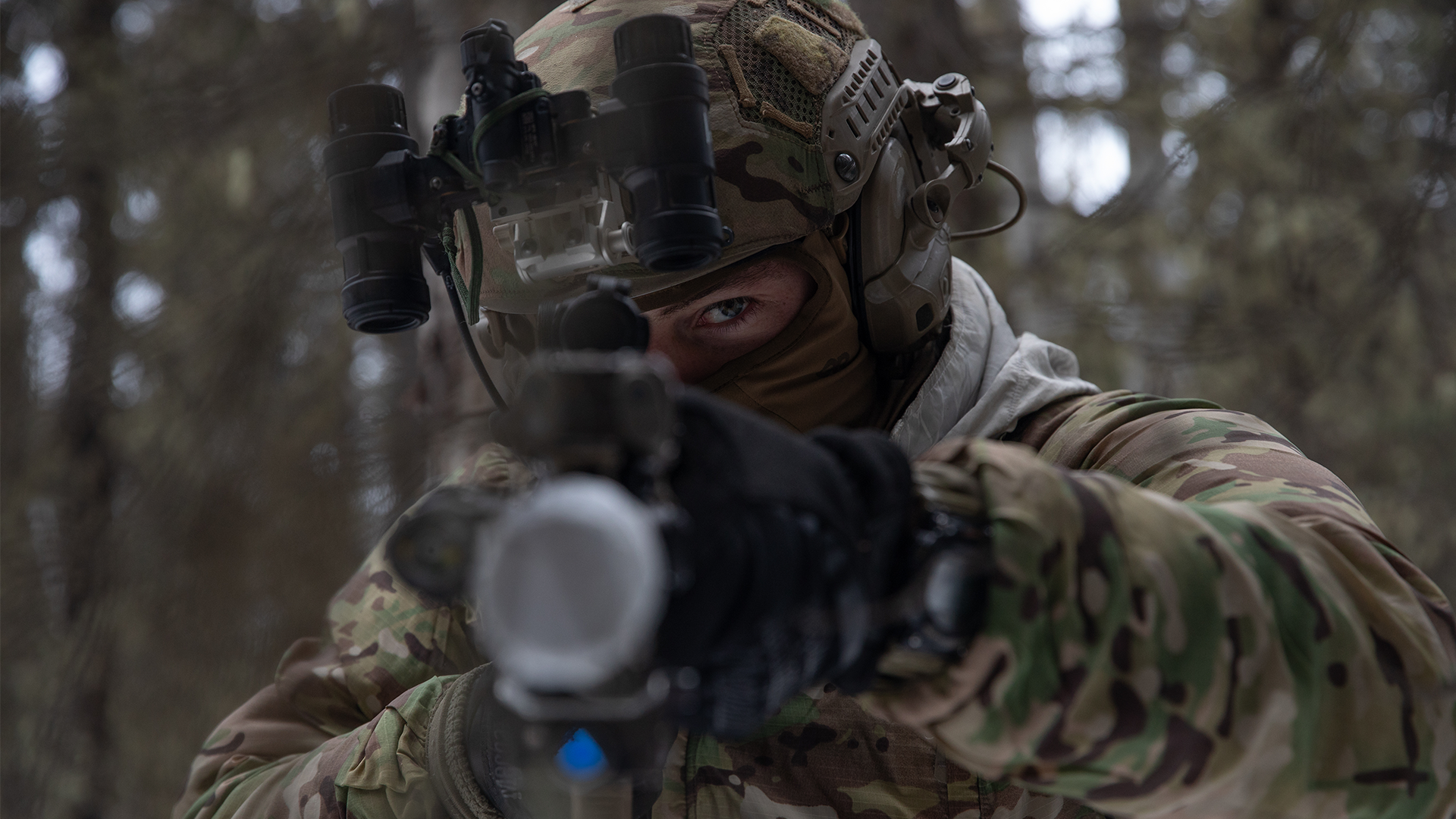
The US Army's toughest test - and the story of the Rangers who take it on

Held over 60 gruelling hours with minimal rest, the Best Ranger Competition stands as one of the most punishing and prestigious endurance events in the US Army.
Designed to push even the most elite soldiers to their physical and mental limits, the annual contest sees two-person teams undertake a series of back-to-back tasks.
These simulate battlefield pressures such as timed ruck marches, obstacle courses, weapons ranges, casualty evacuations, night navigation and stress shoots - often while carrying heavy gear across unforgiving terrain.
Held each spring at Fort Moore (formerly Fort Benning) in Georgia, the event spans more than 60 hours with little to no sleep for the participants.
Finishing is an achievement in itself, and winning places you in an exclusive circle of warriors known for strength, stamina and unrelenting grit.
But this isn't just a competition. It's a reflection of what the Rangers - and by extension the modern US Army - stand for.
This year, one competitor marked a turning point in the event's 41-year history.
First Lieutenant Gabrielle White, a 25-year-old West Point graduate, became the first female Ranger-qualified officer ever to take part.
Lt White was the only woman on any of the 52 two-person teams that competed, and ended up placing 14th.
Her presence alone was historic - but it also spoke to the transformation of a unit once rooted in the wilderness warfare of the 18th century.

The toughest test in the US Army
The Best Ranger Competition began in 1982 as an internal challenge for members of the Ranger Department at then-named Fort Benning.
Since then it has evolved into a military-wide contest of endurance, open to any Ranger-qualified soldier from across the US armed forces.
Failing to meet time standards or complete events means you're out. And for those who do make it to the end, there are no guarantees.
One year, only 16 out of 50 teams finished.
This year, 1st Lt White stood out not just for her performance, but for what her presence signified.
As the first female Ranger-qualified officer to ever compete, she broke new ground in a contest long dominated by men.
A 2021 West Point graduate, 1st Lt White completed the US Army Ranger School - one of the most demanding leadership courses in the military.
She is assigned to B Company, 3rd Battalion, 81st Armored Regiment, 199th Infantry Brigade at Fort Moore, where she is currently attending the Manoeuvre Captains Career Course.
Though she didn't win, her appearance was seen as a landmark moment by many in and outside the Ranger community.

The regiment behind the competition
The Best Ranger Competition is hosted by the Airborne and Ranger Training Brigade, but the name itself reflects the spirit of the 75th Ranger Regiment - the U.S. Army's premier special operations raiding force.
Based at Fort Moore, the regiment includes three battalions, a special troops battalion and a regimental headquarters. All are part of US Army Special Operations Command (USASOC).
The regiment is one of the US Army's most recognisable combat units - a special operations force trained to deploy anywhere in the world at short notice.
Unlike the Special Forces, or Green Berets, who often operate in small teams and train foreign militaries, Rangers are usually deployed in larger formations and focus on short-notice, high-intensity operations.
As the regiment falls under US Army Special Operations Command it regularly works alongside other elite units such as Navy SEALs and Air Force Special Tactics.
Rangers are trained and equipped for direct action raids, airfield seizures and special reconnaissance missions - often under time-critical or high-risk conditions.
All members of the 75th Ranger Regiment must complete the US Army's Ranger School - a physically and mentally demanding course that includes jungle, mountain, and desert training phases.
However, not everyone who graduates Ranger School serves in the regiment. The term "Ranger-qualified" refers to the school, while "Ranger" more specifically applies to those in the 75th.
Since 2001, the regiment has been continuously deployed in combat operations across Afghanistan, Iraq, Syria and elsewhere.
It remains on constant readiness, with teams capable of deploying worldwide within 18 hours.

From frontier raids to modern warfare
The 75th Ranger Regiment traces its lineage back to the mid-18th century, when the original Rangers served as colonial scouts in North America.
The most famous of these was Rogers’ Rangers, formed in the 1750s during the French and Indian War.
Led by Major Robert Rogers, the Rangers became the chief scouting arm of British Crown forces by the late 1750s. Known for their use of reconnaissance, raids and ambushes in challenging terrain, they were especially valued for gathering intelligence on enemy positions and movements.
Rogers' "Rules of Ranging" - his original guide to frontier warfare - remain part of Ranger tradition today.
Though Rogers’ Rangers were disbanded in 1761, the unit was later revived during the American Revolutionary War as a Loyalist force.
While some followed the British cause, the Ranger ethos was also adopted by early American forces, particularly in irregular units like those led by Francis Marion - the "Swamp Fox".
Modern US Army Rangers were first established during the Second World War, with the activation of the 1st Ranger Battalion in 1942.
These elite units saw action in North Africa, Italy and Normandy, and laid the groundwork for the creation of today’s 75th Ranger Regiment, officially activated in 1984.

Carrying the name forward
Today's Best Ranger Competition is as much about tradition as it is about testing skill.
The format changes slightly each year, but the purpose remains the same: to identify the pair of Ranger-qualified soldiers who can best represent the standards expected of the regiment and the wider force.
To be Ranger-qualified is not the same as serving in the 75th Ranger Regiment - but it still means something.
The Ranger Tab is earned through Ranger School, a 61-day combat leadership course known for its punishing pace and mental strain.
It is open to all branches of the military, and to both men and women.
For soldiers like Lt Gabrielle White, competing in the Best Ranger Competition while wearing the tab is a mark of achievement - and a reflection of how the Ranger legacy continues to evolve.









